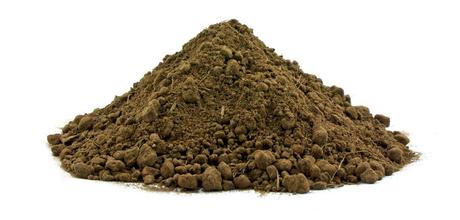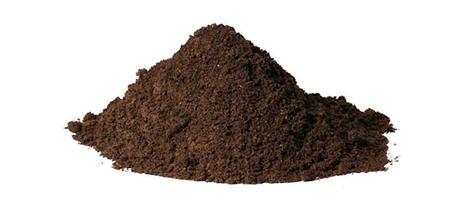There’s a difference between garden soil and potting soil. They may both be soils for planting, but they are fundamentally different and serve different purposes.
Garden soil is normally great for all plants, but there are situations where it stops being an ideal soil. Whenever it is put inside a container, garden soil suffers from drainage and aeration issues, and that is the reason that potting soil got developed in the first place.
If you feel caught between these two soils and you need to decide which one to buy, the following side by side comparison will shed more light and help you out.
Garden Soil

Garden soil is a type of topsoil, which is the top layer of the earth’s surface. It is usually rich in minerals and decaying organic matter, which makes it a good medium for growing plants.
There are different grades of garden soil, depending on its material composition. If it has a lot of large-grained sand, then it gets classified as sandy and can neither hold enough water nor have enough nutrients.
If there is more clay in the mix, then it gets classified as clayey, which easily becomes water-logged and compacted. This is also not an ideal soil type for planting. The ideal type of garden soil is loam. Loamy soil is neither too sandy, nor too clayey, and this makes it perfect for growing all types of plants.
You can either make garden soil by yourself or buy a premixed product. The commercial garden soil is usually mixed to target a particular kind of plant or garden and can either be completely organic or not.
The pH scale is also an issue with garden soil, it is best to test your garden soil first and make sure it has the right pH level if you want to get the most yield from it.
Pros of Garden Soil
- Plenty and cheap. Garden soil is readily available everywhere and you can easily make yours by mixing compost with good loamy soil. You can also buy garden soil for your own purposes.
- Nutrient-rich. Given the presence of minerals from rocks and organic matter from dead and decaying plants and animals, garden soil is usually very nutrient rich. This is why most flowers and vegetables do well in it.
- Natural and maintenance-free. Garden soil is a natural type of soil which simply takes care of itself for years to come. All it might need is an occasional addition of compost and that’s it.
- Can be 100% organic. If you’re eco-friendly, then it’s good to know that 100% organic soil is available. This is not possible with potting soils.
Cons
- Often presents pH Issues. Unlike potting soil, garden soil can have a pH value which is either too acidic or too alkaline for your planting purpose. This usually means extra work on your side to adjust it.
- May need amending. Different plants have different soil requirements. Garden soil may also need amending with extra materials to make it ideal for certain plants, or to make it usable in a container.
- Can contain disease-causing organisms. This is the major advantage of potting soil over garden soil. Being completely natural, garden soil will always have micro-organisms in it, and some of these will cause diseases for certain plants.
Potting Soil

Potting soil is a mixture of different materials, which produce an ideal medium for plant growth inside a container. It’s designed to solve the aeration and drainage issues of garden soil inside a container.
Potting soil is usually a soil-less media, which is made from peat moss, pine bark, perlite, and vermiculite. The pine bark adds organic matter to it, while peat moss soaks air and water quickly, and then release them slowly.
Vermiculite and perlite are both used to control and maintain nutrients, moisture content, and drainage in the soil mix. In addition, the mix can get heat treatment to make it sterile and guarantee disease-free plants.
Potting soils come in both a standard and in a variety of other mixes, including the seed starting mix. This is fluffier and lighter than the other mixes to enable seeds to grow easily inside it.
There is also an orchid and a cactus mix, which both contain mixes that try to mimic the plants’ natural environments.
Pros of Potting Soil
- Right mix. A potting mix comes complete with everything you need, including the right mix of nutrients, organic matter, and water retention properties.
- Convenient. Just add water and you are good to go, no soil testing or preparation in any way. Potting soil is very convenient to use and comes well packaged.
- Lightweight planting soil. This is another advantage of potting soil and it makes transportation easier, unlike garden soil, which is many times heavier.
- Seed Starting mix. In addition to a standard mix, potting soils are also available for seed starting. This special mix takes the needs of especially small seeds into consideration and provides easy access for root growth.
- Sterile. All potting mixes are not sterile, but a large number are. You’ll have to read the label so you are sure of what you are getting.
Cons
- More costly. Potting soils come in different price classes and are generally more costly than garden soil.
- Can be too lightweight. While its light weight makes potting soil easier to transport, it can often be a disadvantage in windy locations, where the plant could have withstood the wind if it had a heavier soil foundation.
- Breaks down with time. Over time, the organic part of most potting soils will break down, resulting in the soil’s loss of aeration and drainage properties. When this happens, you’ll have to discard the old one and get new soil.
Making the Right Choice
As you can see, both garden soil and potting soil have their individual advantages and disadvantages, so none is simply better than the other. Here again is an overview of their important features

Potting soil and garden soil are two different types of soils for planting, with each one having its strong and weak points.
Your choice between the two depends, therefore, on what you intend to plant and where you want to do the planting.
If you just need some plants for the house or the balcony, then potting soil should do.
If you are planning to produce lots of vegetables in your garden or something like that, then garden soil and a good pH test result is what you need.
